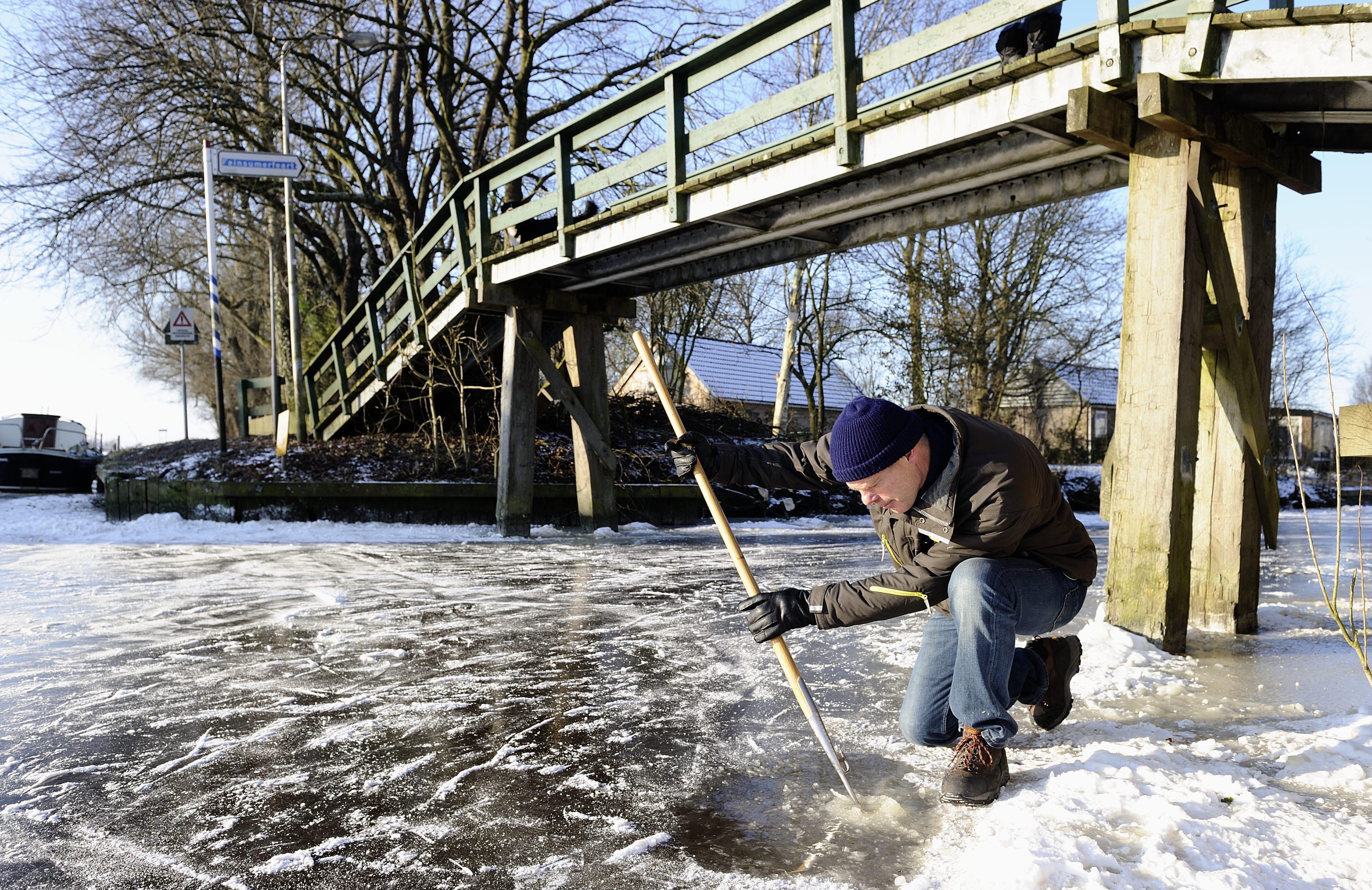As the 2014 Winter Olympics draw to a close, one thing, at least, is clear: The Dutch are the greatest speedskaters in the world. The Netherlands won 23 speedskating medals in Sochi; the second-most-successful nation, Poland, only won three. Why are the Dutch so good at speedskating? For one thing, the sport is a bonafide national obsession. (Seriously: I hope someday to care about anything as much as the Dutch apparently care about speedskating.) And if you want to understand the depths of that obsession, it helps to understand the Elfstedentocht.
The Elfstedentocht—Dutch for “Eleven Cities Tour”—is a 200-kilometer outdoor speedskating race over the frozen canals of Friesland, a northern province of the Netherlands. It has been described as “the Super Bowl, Stanley Cup and World Series rolled into one”—and it might just be my favorite athletic event of all time. The race was first held in 1909, and has since become a national tradition, an epic test of Dutch citizens’ endurance, athleticism, and sanity. On the website Cafe Babel, a fan posted an ominous ode to the race: “Think, endless stretches of ice in a barren landscape/ Think, the wind cutting on your face and sweeping snow in your eyes/ Think, frozen toes, fingers, noses and ears/ Think, the hardest race in the world.” Sign me up!
There’s no set schedule for the Elfstedentocht; it only happens when the ice is sufficiently thick—at least 15 centimeters in depth throughout. But the impromptu nature of the race is a big part of what makes it so exciting. Once the organizers decide that the conditions are right for an Elfstedentocht, plans are made, and the race is held within 48 hours of the official announcement. The race kicks off at 5:30 in the morning, and must be completed before midnight that same day. The skaters pass through 11 cities, collecting a stamp in each one, cheered by millions of spectators. Though professional speedskaters are the ones competing for the fastest times, thousands of ordinary Dutch citizens skate the route, too, just for fun. In 1986, Dutch Crown Prince Willem-Alexander skated the Elfstedentocht, under the pseudonym “W.A. Van Buren.”
The most memorable Elfstedentocht happened in 1963, when temperatures were so low and conditions so snowy and windy that fewer than 200 out of approximately 10,000 participants actually finished the race. Countless skaters suffered frostbite and other weather-related injuries. The race became known as “The Hell of ’63,” and this video gives you a sense of why the name was apt:
There hasn’t been an Elfstedentocht since 1997, when the race was won by Henk Angenent, a speedskater and Brussels sprout farmer, who finished in 6 hours and 49 minutes. But every winter, the Dutch hope that the race might happen. In 2012 temperatures dipped low enough that an Elfstedentocht seemed possible, and the Netherlands went crazy. Skating fans booked every hotel room in Friesland. Speedskaters declared that they would skip the upcoming world championships to skate the Elfstedentocht. “Busy sharpening skates, rummaging through layers of clothes, training soon for the elfstedentocht. I’VE GOT THE FEVER,” Vancouver speedskating gold medalist Mark Tuitert posted on Twitter. Unfortunately, the organizing committee decided that the ice was insufficiently thick, and the race was canceled. According to the BBC, an Elfstedentocht official “urged skaters not to despair and instead get out on the ice and skate their disappointment away.”
And I think that explains why the Dutch are so good at speedskating. All year, they look forward to this horribly grueling outdoor skating contest, and when it doesn’t happen, they console themselves with more skating. Now that’s devotion! With global temperatures trending upward, some wonder whether conditions will ever again be right for the Elfstedentocht. Let’s hope so. Until then, the Dutch will have to console themselves with continued international dominance of a sport that nobody comes close to caring about as much as they do.
